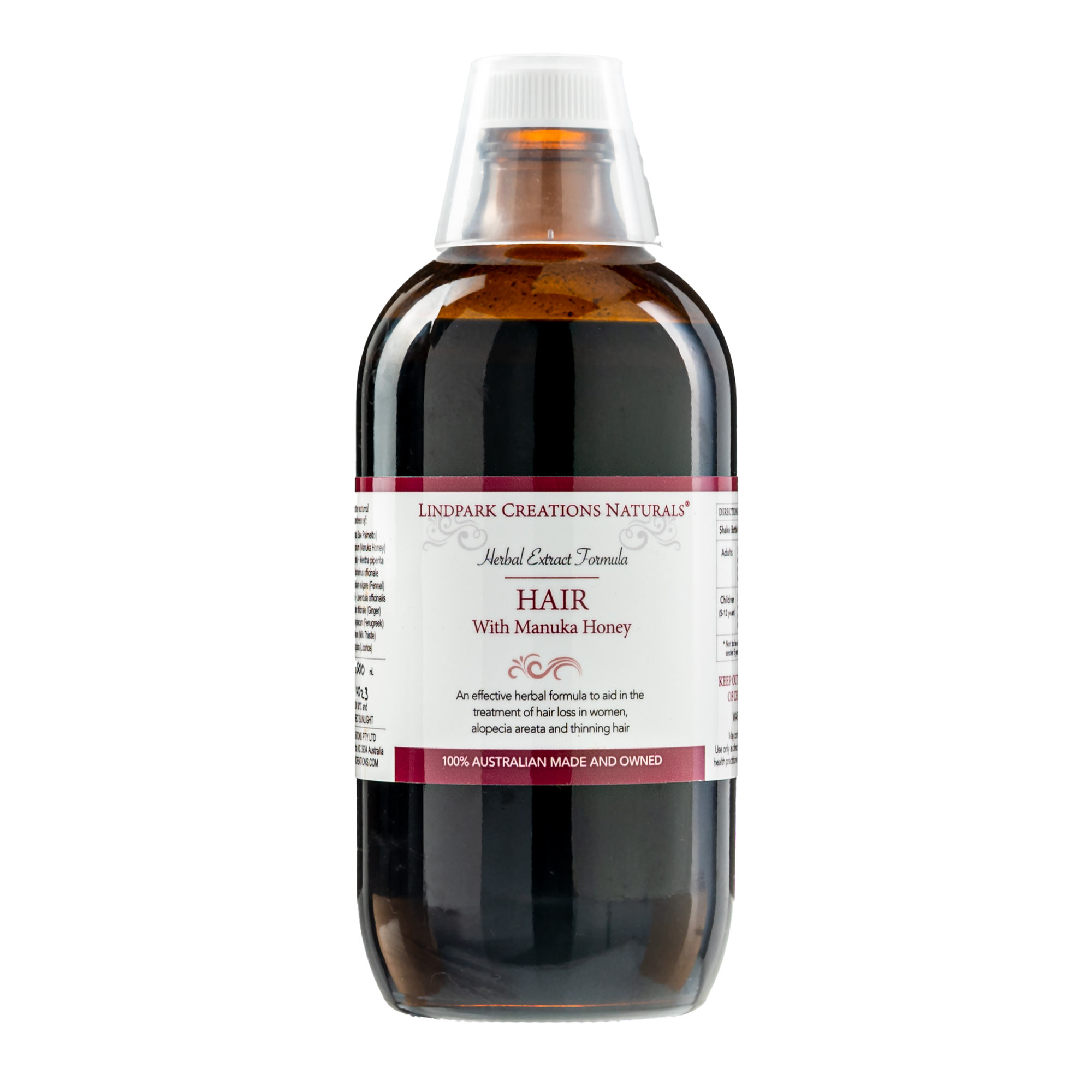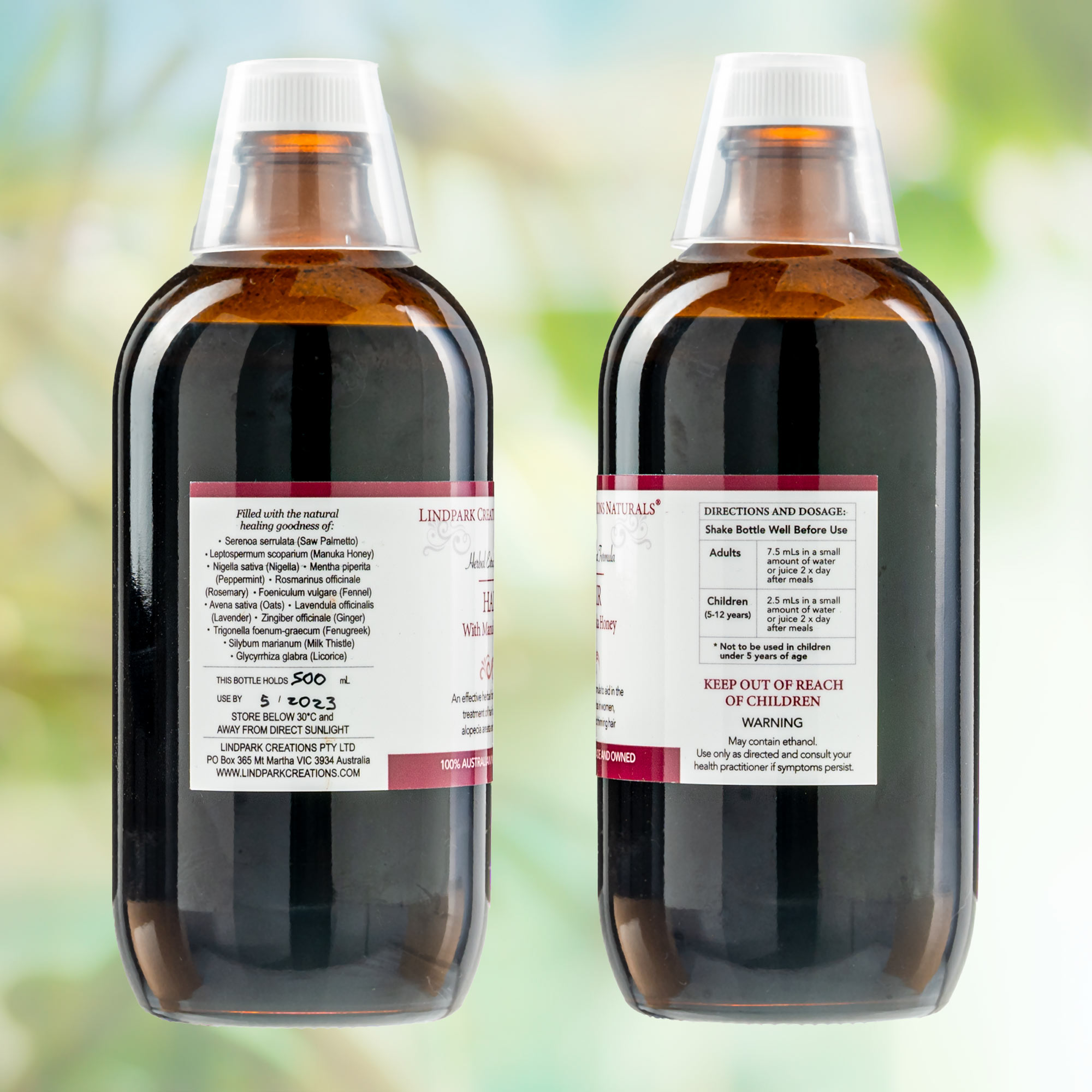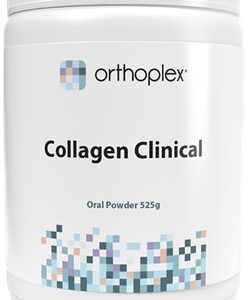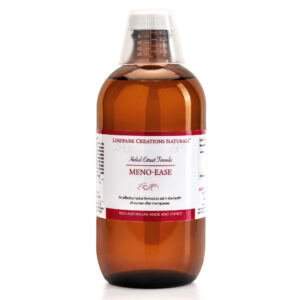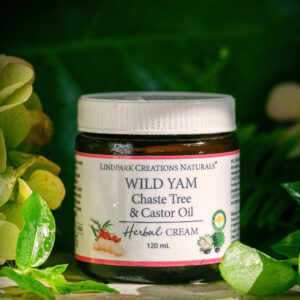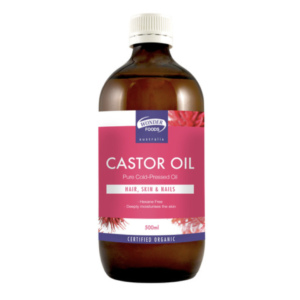Description
Hair loss of all kinds, including alopecia, is a common problem that can affect both men and women.
We are not referring to genetic hair loss here or genetic male pattern baldness.
Our “Hair” herbs, contain natural herbal extracts traditionally used to stimulate circulation in order to strengthen your hair follicles for stronger, healthier locks.
Ingredients
Serenoa serrulata:
Contain volatile oil, steroidal saponins, tannins, dextrose, resins which may have the following actions: tone the prostate, relaxant, urinary antiseptic, endocrine agent. It is a herb traditionally used to tone the male reproductive system. In women, may block the over-production of testosterone which leads to hair loss and acne.
Leptospermum scoparium:
Manuka has been used by ancient civilisations. It is rich in nutrients. Its chemical composition with special reference to flavonoids, polyphenol, and other bioactive trace compounds used in tissue regeneration have been discussed in detail. Some actions include: anti-allergic, anti-dandruff, antifungal, anti-inflammatory and nerve support amongst others. In addition to bacterial growth inhibition, glyoxal (GO) and MGO from Manuka honey can enhance wound healing and tissue regeneration by its immune modulation properties.
Nigella sativa:
Traditionally considered in many cultures a “miracle” herb. With a rich history dating back 2,000 years used widely in traditional healing systems. Most of the properties of this herb are due to the pharmacological activity of thymoquinone. Since it’s isolation in 1963, thymoquinone has been extensively studied to determine its antioxidant, antihistaminic, anti-inflammatory, anthelmintic, antiallergic, antibacterial, antifungal, anti-hypertensive, hypoglycaemic, hypolipidaemic, gastroprotective, nephroprotective, hepatoprotective, anti-cancer and immunomodulatory activity.
Mentha piperita:
Contains menthol, bitter principle, tannins which have a calming and antispasmodic effect on the digestive system; relieves nervous bowel, flatulence, colic and diarrhoea; traditionally used for nausea and managing fevers.
Rosmarinus officinale:
Contains borneol, linalol, camphene, cineole and camphor; tannins; bitter principle; resins. Traditionally used as a nutritive to the nervous system, carminative, antiseptic, anti parasitic and digestive tonic.
Foeniculum vulgare:
Contains volatile oil (up to 8% consisting of anethole, estrogole, fenchone), flavonoids (rutin, quercetin, kaempferol glycosides), coumarins, sterols. Traditionally used as a carminative to the digestive system, anti-inflammatory to the intestines and may relieve griping, colic and flatulence.
Avena sativa:
Rich in silicic acid; mucin; calcium. Actions may include nerve tonic, anti-depressant, nutritive.
Lavendula officinalis:
Contains linalyl acetate, linalol, geraniol, cineole, limonene and sequin-terpenes. Traditionally used for its calming and antispasmodic actions and is effective as a natural anti-depressant, it will strengthen the nervous system.
Zingiber officinale:
Rich in zingiberene, zingiberole, phellandrene, borneol, cineole, citral; starch; mucilage; resin and traditionally used to improve peripheral circulation
Trigonella foenum-graecum:
Contains diosgenin, alkaloid (trigonelline), bitter principle, mucilage and volatile oil. Actions may include a good nutritive, digestive tonic, hypoglycaemic, healing and anti-inflammatory.
Silybum marianum:
Contains flavonolignans (including silybin), flavonoids (including silymarin), bitter principle. May aids in liver detoxification; support and protect liver cells from poisons; lowers cholesterol; aids depression
Glycyrrhiza glabra:
Contains glycoside, triterpenoid saponins, flavonoids, bitter, volatile oil, oestrogenous substances, asparagus, coumarins, tannins. Acts on the adrenals as a tonic and anti-inflammatory effects to hydrocortisone. Protects the stomach wall and reduces gastric acid secretion. For gastric ulcers and adrenal stress and depression; a systemic anti-inflammatory also useful for respiratory distress.
Caution:
Not to be taken in pregnancy or in children less than 5 years.
Store in a cool dark place.
If symptoms persist, see your Health Practitioner

